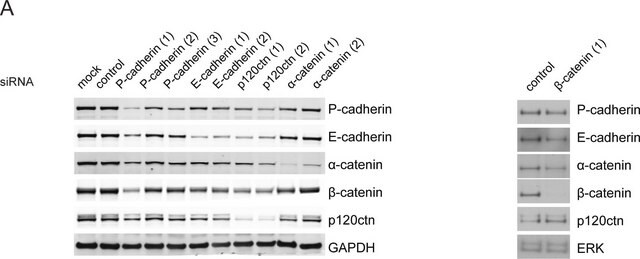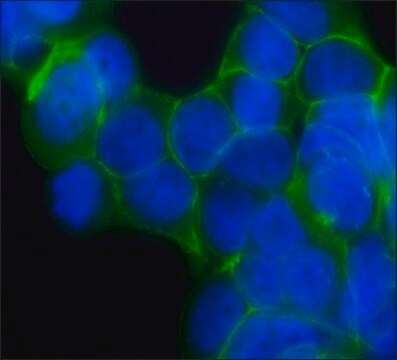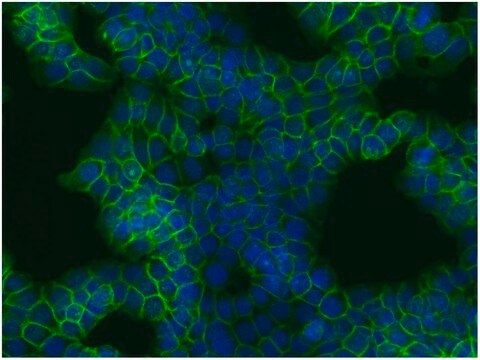C7082
Monoclonal Anti-β-Catenin antibody produced in mouse
clone 6F9, ascites fluid
Synonym(s):
Anti-CTNNB, Anti-EVR7, Anti-MRD19, Anti-NEDSDV, Anti-armadillo
About This Item
Recommended Products
biological source
mouse
Quality Level
conjugate
unconjugated
antibody form
ascites fluid
antibody product type
primary antibodies
clone
6F9, monoclonal
mol wt
antigen 94 kDa
contains
15 mM sodium azide
species reactivity
human, chicken, canine, bovine
technique(s)
indirect immunofluorescence: 1:1,000 using cultured MDBK cells
microarray: suitable
western blot: 1:1,000 using cultured MDBK cells extract
isotype
IgG1
UniProt accession no.
shipped in
dry ice
storage temp.
−20°C
target post-translational modification
unmodified
Gene Information
human ... CTNNB1(1499)
General description
Specificity
Immunogen
Application
Immunofluorescence (1 paper)
- immunohistochemistry
- immunofluorescence
- immunoblotting
Biochem/physiol Actions
Physical form
Storage and Stability
Disclaimer
Not finding the right product?
Try our Product Selector Tool.
Storage Class Code
10 - Combustible liquids
WGK
WGK 3
Flash Point(F)
Not applicable
Flash Point(C)
Not applicable
Personal Protective Equipment
Certificates of Analysis (COA)
Search for Certificates of Analysis (COA) by entering the products Lot/Batch Number. Lot and Batch Numbers can be found on a product’s label following the words ‘Lot’ or ‘Batch’.
Already Own This Product?
Find documentation for the products that you have recently purchased in the Document Library.
Customers Also Viewed
Articles
Cancer stem cell media, spheroid plates and cancer stem cell markers to culture and characterize CSC populations.
Cancer stem cell media, spheroid plates and cancer stem cell markers to culture and characterize CSC populations.
Cancer stem cell media, spheroid plates and cancer stem cell markers to culture and characterize CSC populations.
Cancer stem cell media, spheroid plates and cancer stem cell markers to culture and characterize CSC populations.
Our team of scientists has experience in all areas of research including Life Science, Material Science, Chemical Synthesis, Chromatography, Analytical and many others.
Contact Technical Service









